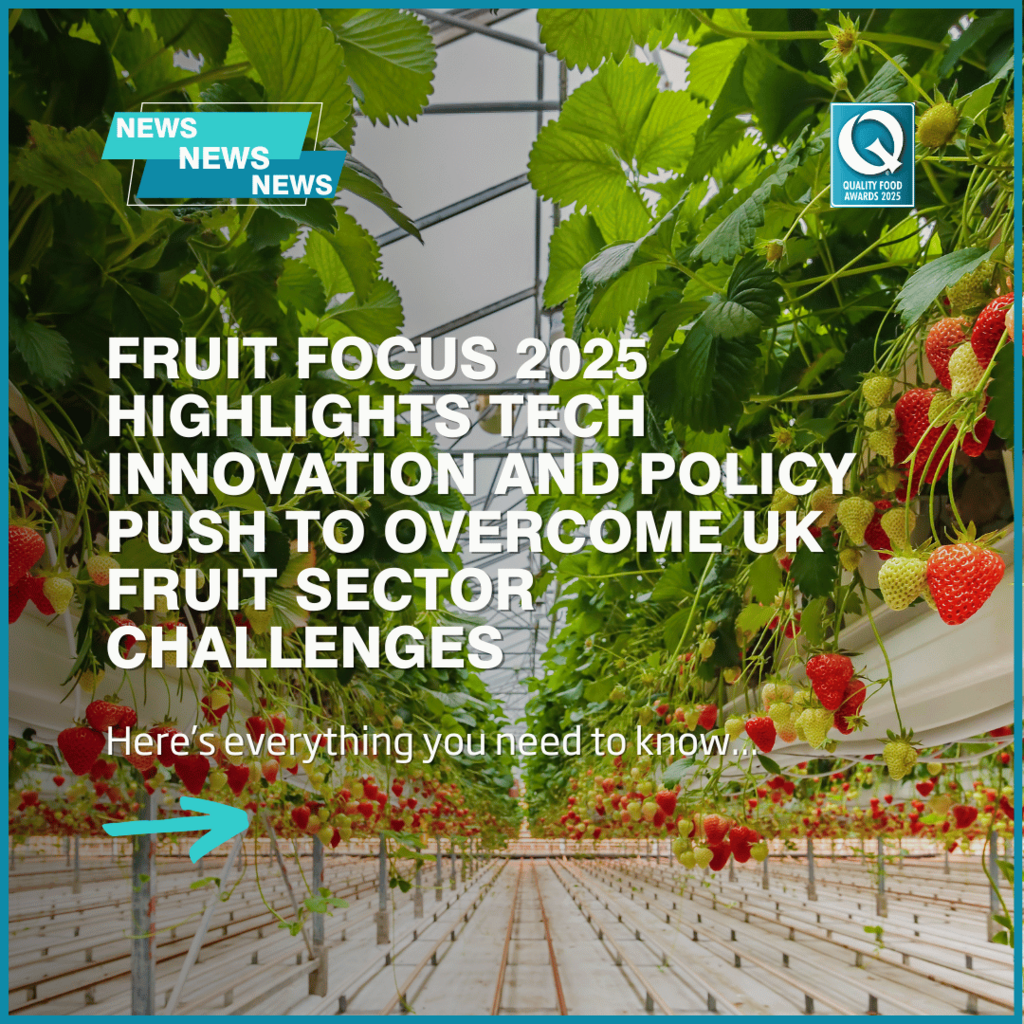
Fruit Focus 2025 highlights tech innovation and policy push to overcome UK fruit sector challenges
Fruit Focus 2025 attracted over 1,500 industry stakeholders, spotlighting innovations in automation, water management, and crop protection amid climate risks. Government-backed funding and reforms aim to boost UK fruit production, tackling export barriers and labour shortages with high-tech solutions.
Food security, evolving climate conditions, and workforce availability dominated discussions at Fruit Focus 2025, where innovation was championed as a crucial pathway for strengthening the UK’s fruit industry. The event, held on 9 July at the East Malling Research Station, attracted over 1,500 participants from the fresh fruit and wine sectors, including growers, researchers, and suppliers, all keen to explore emerging technologies and strategies shaping the future of UK horticulture.
Martin Emmett, Chair of the NFU Horticulture Board, underscored the urgency of enhancing domestic food production amid climate pressures and global uncertainties. He pointed to the UK Government’s food strategy as a significant opportunity for the horticultural sector to gain much-needed support, cautioning that success would require active advocacy. The recent heatwave, with temperatures soaring near 30°C, exemplified the broader risks climate change poses to food infrastructure in the UK and Europe, reinforcing the imperative of resilient domestic supply chains.
Trade barriers remain a notable obstacle to growth, especially in exporting British berries to European markets. Nick Marston, Chair of the British Berry Growers, highlighted that phytosanitary certificate delays in England—taking four to five days—are longer than the shelf life of the berries themselves, contrasted with much faster certification processes in the EU and Scotland. This bottleneck limits export potential, pointing to resource and system shortcomings in regulatory inspection that hinder competitiveness.
Water management amid rising temperatures was a key theme, with companies such as Agri Management Solutions promoting sustainable irrigation technologies. Their Nettuno Diesel Pump Model 3, remotely controllable and capable of pumping large volumes efficiently, is designed to help growers conserve water amid increasing scarcity.
Labour shortages fuelled a surge in automation showcased at Fruit Focus. Dogtooth Technologies introduced its Gen 5 robotic strawberry picker, a UK-designed machine capable of precise crop analysis and yield prediction. Daniel Stockhill from Dogtooth noted that one operator can manage twelve robots, greatly enhancing labour efficiency and uniformity in production, marking a significant advance in tackling workforce constraints.
UK research institutions also emphasised innovation in crop quality and protection. Projects range from monitoring bee activity to improve pollination in strawberries, deploying drones to enhance fruit quality, to early pathogen detection in soft fruit and vineyards using spore detection technology developed by Newcastle University. These innovations reflect a broader commitment to leveraging advanced science for sustainable horticulture.
In pursuit of sustainability, GyroPlant’s reusable plug systems offer an alternative to traditional substrate growing, which involves extensive material use and disease risks. Founder Marcus Comahsi shared that trials, including those conducted by fruit business Dole in Kent, aim to produce seedlings without soil contact, reducing disease risks and enhancing crop health. Early trials with kale, lettuce, and strawberries have shown promising results for cleaner, more sustainable propagation systems.
Visitors to the event also engaged with research tours, notably the Strawberry Vertical Farming Research facility, which attracted substantial interest for its potential to revolutionise production methods. Niab CEO Mario Caccamo described the sector as “thirsty for innovation” and capable of setting global benchmarks for environmentally conscious horticulture, though he stressed the necessity of supportive government policies for sustainable success.
The energy and enthusiasm at Fruit Focus mirrored a wider national context where the UK government has recently launched comprehensive plans to boost domestic fruit and vegetable production. These include raising funding for horticulture to £80 million annually, creating offers like the Horticulture Resilience and Growth scheme, and addressing regulatory barriers to modernise infrastructure such as glasshouses. The overarching aim is to reduce reliance on imports and bolster the resilience of the UK food supply chain.
High-tech horticulture and smarter greenhouse technologies are increasingly seen as pivotal to this strategy. UK imports currently supply more than 80% of fruit and over half of vegetable consumption, highlighting vulnerability in food security. Advanced greenhouses leveraging artificial intelligence and controlled environments promise year-round production, though growers face challenges from ageing infrastructure and high energy costs. Addressing these barriers is vital to transforming domestic capabilities.
Complementary efforts include burgeoning adoption of robotic pickers and AI-powered systems in precision farming, which aim to overcome labour shortages while enhancing efficiency and sustainability. The UK's innovation sector continues to evolve rapidly, shaping a food future that is more reliable, environmentally aware, and economically viable.
Altogether, Fruit Focus 2025 and the broader national initiatives signal a determined push toward a resilient, innovative, and sustainable fruit industry in the UK, with technology and research at its core. The sector’s future, while challenging, appears bright with continued investment, progressive policy support, and collaborative innovation.
